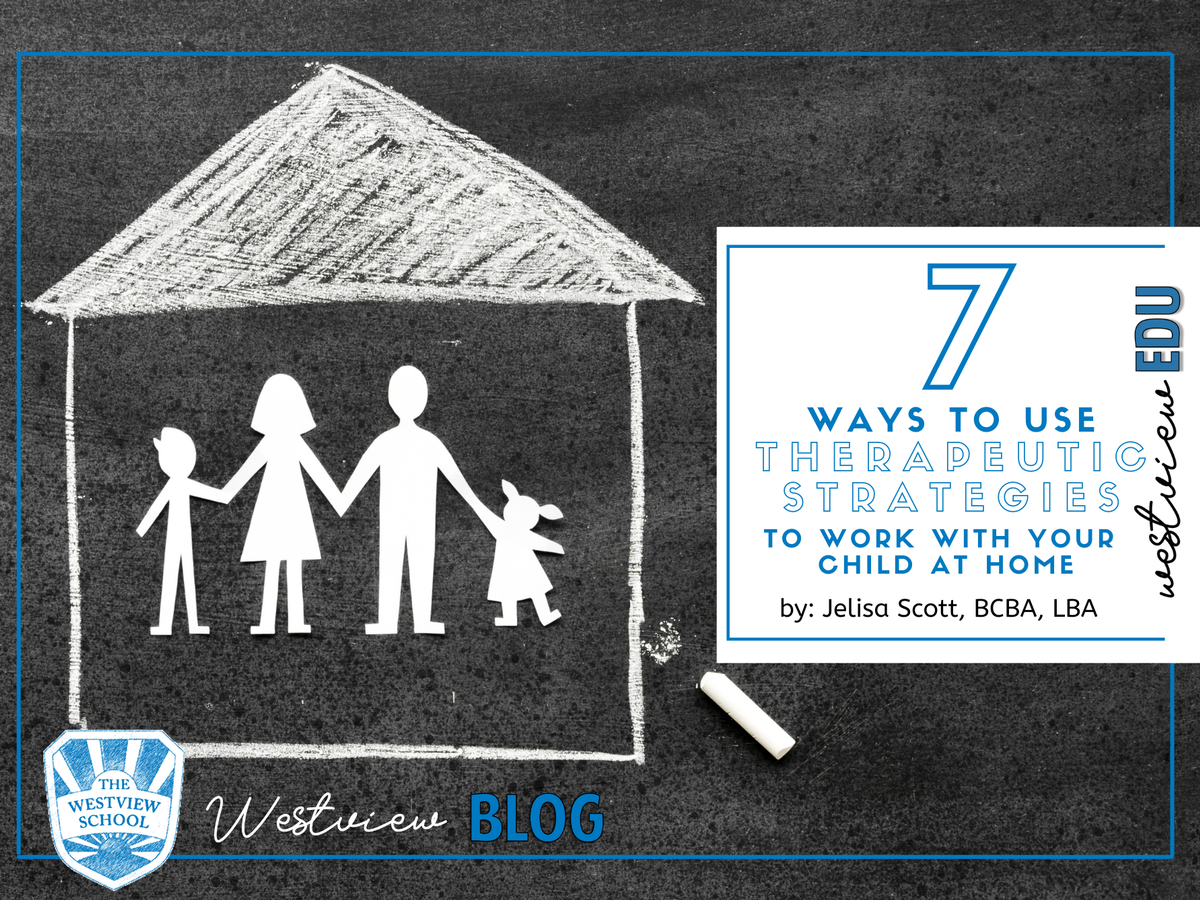
7 Ways to Use Therapeutic Strategies to Work with Your Child at Home

If you have a child on the autism spectrum, it is more than likely that therapy sessions play a part in your monthly calendar. The types of therapy that specifically benefit your child may differ. However, it has been proven that therapy for children with autism spectrum disorder is beneficial to improve behaviors that interfere with your child's ability to learn and support the development of skills needed for children to care for themselves independently. As a parent, you can use therapeutic strategies learned from professionals to help you work with your child at home.
This is not a post about what therapy will work best for your child but one that offers therapeutic strategies you can use to work with your child at home. However, it is essential to make sure the therapy of choice for your child is effective. The best quality therapies have documented evidence of replicated positive effects and don't rely heavily on personal testimonials. Most importantly, you should be receiving parent support from your child's therapist to learn about ways to improve or sustain your child's progress.
The best ways to apply skills that your child has learned in the home are to:
1. Create functional learning opportunities. For example, if your child is working on requesting things they need, set up situations that will help them functionally apply the skills they are learning. Give them a bowl with no spoon or an empty cup with no juice. This will create the opportunity to apply their newly learned skills.
2. Turn mistakes into learning opportunities. Help foster independence and application of problem-solving skills by helping your child find solutions to the mistakes that they have made.
3. Establish and follow through with boundaries and consequences. Be clear with your expectations and do exactly what you say you are going to do. If you say, "First we need to clean up, then we will go to the park," then you should only take them to the park IF they cleaned up first. When you don't follow through with the boundaries you set, you unintentionally teach your child that they don't need to follow your instructions.
4. Reinforce attempts at independence. Reinforcement is the only way to increase the likelihood of them engaging in that independent behavior in the future. Since we want our children to be as independent as they can, we must reinforce their attempts at being independent.
5. Include language used in therapy in the home (and vice versa). Using the language or phrases that your child commonly hears will help promote generalization across settings, like the home and their therapy clinic.
6. Adapt accommodations for home use and portability. Make sure that you can bring any accommodations (ex: visuals, communication devices, sensory tools, etc.) that help make your child successful into the home and community.
7. Evaluate and care for your personal well-being. You will not be able to apply all the previously described strategies without taking care of your own mental, physical, and emotional needs.
Putting these therapeutic strategies into practice at home is a great way to reinforce your child's work in the therapy setting.
--
Jelisa Scott is a Board Certified Behavior Analyst (BCBA) and a Licensed Behavior Analyst (LBA) in the state of Texas. She received her bachelor's in Psychology from Louisiana State University in 2010, her master’s degree in Behavior Analysis from the University of Houston Clear Lake in 2014 and is currently in school to earn her doctorate degree in School Psychology from the University of Houston. Jelisa has been working with children with and without special needs since 2008 and has gained experience providing in-home ABA services, parent training, classroom consultations, navigating ARD meetings, decreasing severe problem behavior, improving verbal behavior, social skills training, and early childhood intervention.
This blog post was adapted from the presentation given during WestviewEDU on Thursday, October 7, 2021. WestviewEDU is an education series presented by The Westview School for parents and caregivers of children with autism spectrum disorder. For a full list of WestviewEDU sessions for 2021/2022 academic calendar year, visit The Westview School online.
